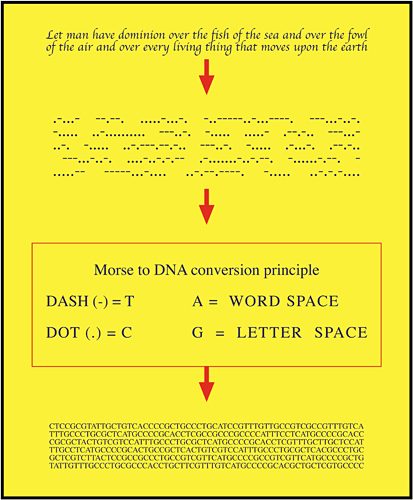E.K.: You have to look at the specificity of these codifications that I have employed. The first one is the biblical passage in English, because, you know, the Bible was written through a very long period—it is believed from the twelfth to the 2nd century BCE—by many voices and many different styles. And then all those different individual isolated pieces of writing were one day collected and eventually translated into Greek and Latin.
When they came down to English, when King James produced a translation, he hired an army of scholars, so to speak, who borrowed from the original classical Hebrew text (which included portions in Aramaic), and from other translations, in other words, from multiple sources. So this is a multi-vocal, processual text, that never stopped being so. It has always been a text that has continuously flowed, converged and diverged, not to mention the fact that these ancient idioms did not have space between them or punctuation. The level of ambiguity in those writings is enormous. When you look at my translations, it might make you understand that this is not a fixed text. Then you have the perverse irony that the passage that I selected is one in which God gave men total control over all life forms. And King James sent his book, his translation, aboard ships to conquer the new world, to effectively dominate everything that lived.
